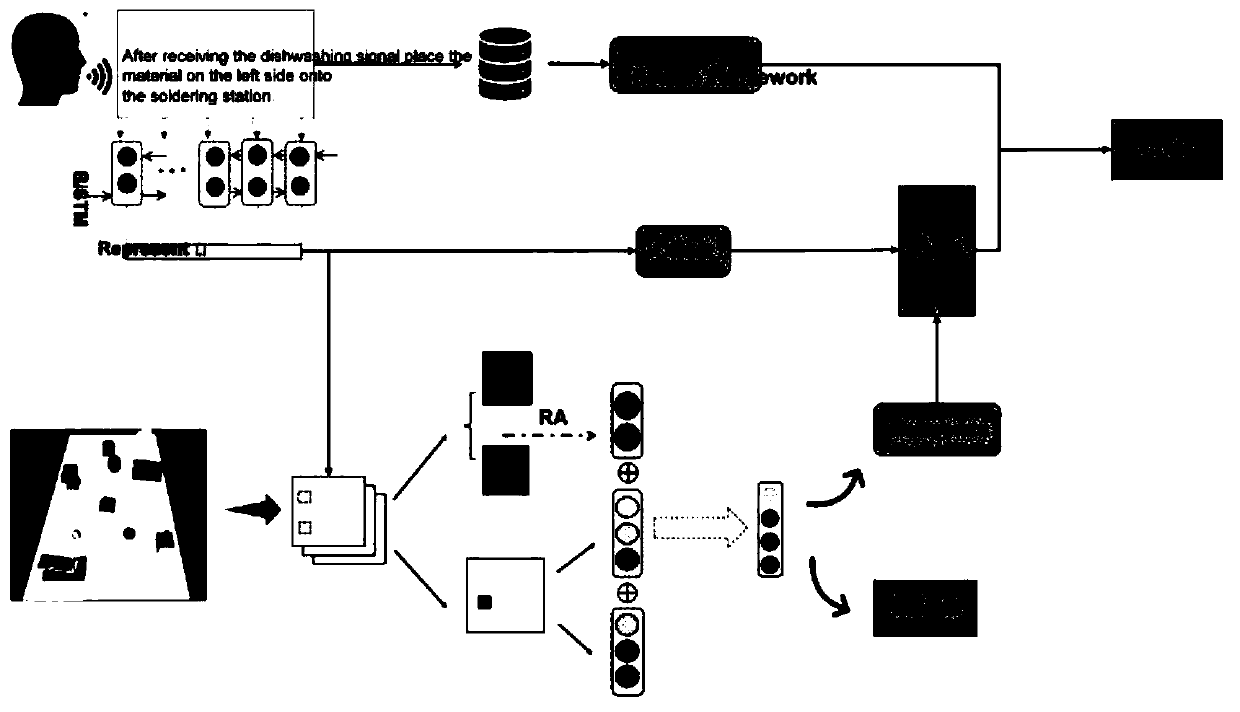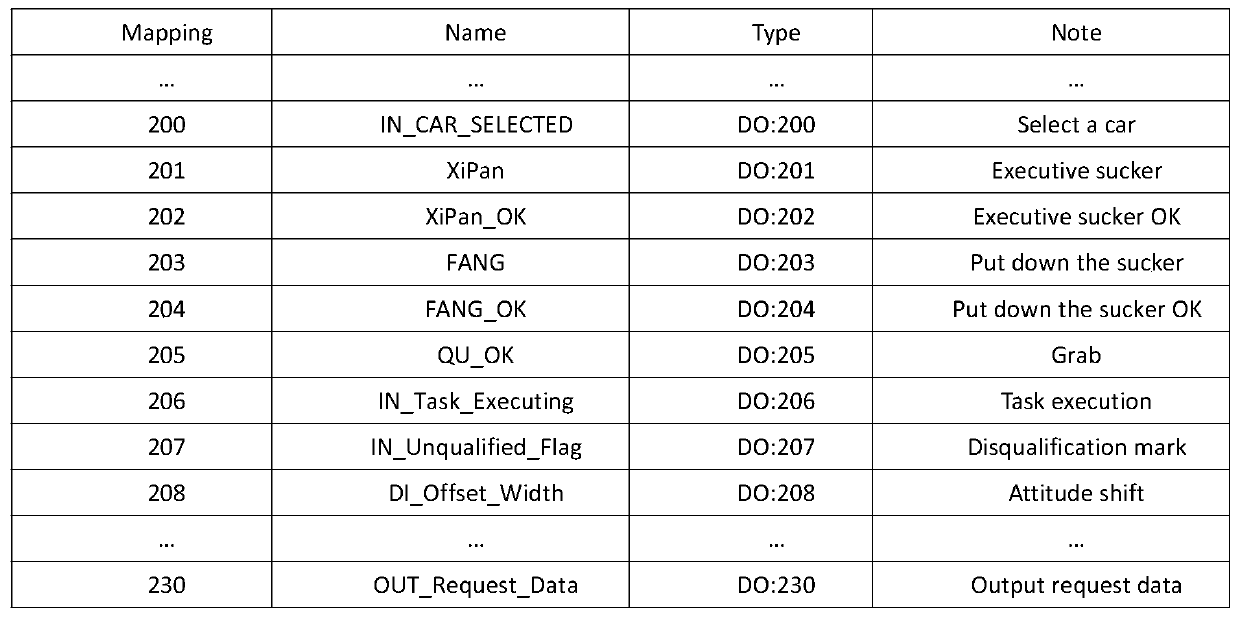Industrial robot auxiliary programming method based on natural language
An industrial robot and natural language technology, applied in the field of robot programming, can solve the problems of not meeting the needs of industrial intelligent manufacturing, not providing industrial engineers' source code, and unfavorable to reuse similar codes, so as to improve development efficiency and simplify programming complexity. , the effect of simplifying the development burden
- Summary
- Abstract
- Description
- Claims
- Application Information
AI Technical Summary
Problems solved by technology
Method used
Image
Examples
Embodiment Construction
[0023] The present invention includes three subtasks. The following further describes the present invention with reference to the drawings and embodiments.
[0024] figure 1 It is a schematic diagram of the overall model structure of the present invention.
[0025] The method of the present invention is divided into three cohesive subtasks, and the specific steps are as follows:
[0026] Task 1. Identify the target object
[0027] Step (1), preprocess the input language instruction and environment image. The pre-processing includes using Bi-RNN with LSTM to extract language features of language instructions and using F-RCNN to preprocess environmental images, so as to obtain target candidate region features. Specific steps are as follows:
[0028] 1.1 Instruction code: Instruction I composed of i words i ={x 1 , X 2 , X 3 ,..., x i }Enter the RNN network. Encode language instructions through Bi-RNN with LSTM, recursively generate hidden state sequence I i , And then through the learn...
PUM
 Login to View More
Login to View More Abstract
Description
Claims
Application Information
 Login to View More
Login to View More - R&D Engineer
- R&D Manager
- IP Professional
- Industry Leading Data Capabilities
- Powerful AI technology
- Patent DNA Extraction
Browse by: Latest US Patents, China's latest patents, Technical Efficacy Thesaurus, Application Domain, Technology Topic, Popular Technical Reports.
© 2024 PatSnap. All rights reserved.Legal|Privacy policy|Modern Slavery Act Transparency Statement|Sitemap|About US| Contact US: help@patsnap.com










